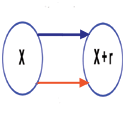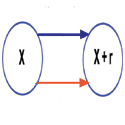Control of rare events
Fluctuations are ubiquitous in biophysical systems. Examples, which range from microscopic to macroscopic systems, include single-cell protein levels, microbial populations, and predator-prey populations. In such discrete stochastic systems, occasional large fluctuations can lead to dramatic changes like population extinction. In a recent publication in Physical Review E, Michael Khasin and Mark Dykman from Michigan State University, US, have studied a way to influence the rate of such large fluctuations by imposing small-step transitions in a defined way at defined instants of time. They found that, even though the imposed transitions are not strong enough to cause the system to switch to a new macroscopic state, this deterministic control strongly increases rates of rare events in discrete stochastic systems. As an application of their results, they studied how deterministic periodic vaccinations could speed up disease extinction.
Results of this study may have applications in chemical systems, as well as population systems, where a deterministic intervention occurs in noisy systems consisting of only a few tens or a few hundred molecules or individuals. Examples include collective behavior of processive molecular motors, control of chains of biochemical reactions, and gene regulatory networks. The theory applies to mesoscopic systems, where the characteristic number of molecules or individuals is large, but not exceedingly large, and the changes imposed by the control pulses are small. – Margaret Foster





